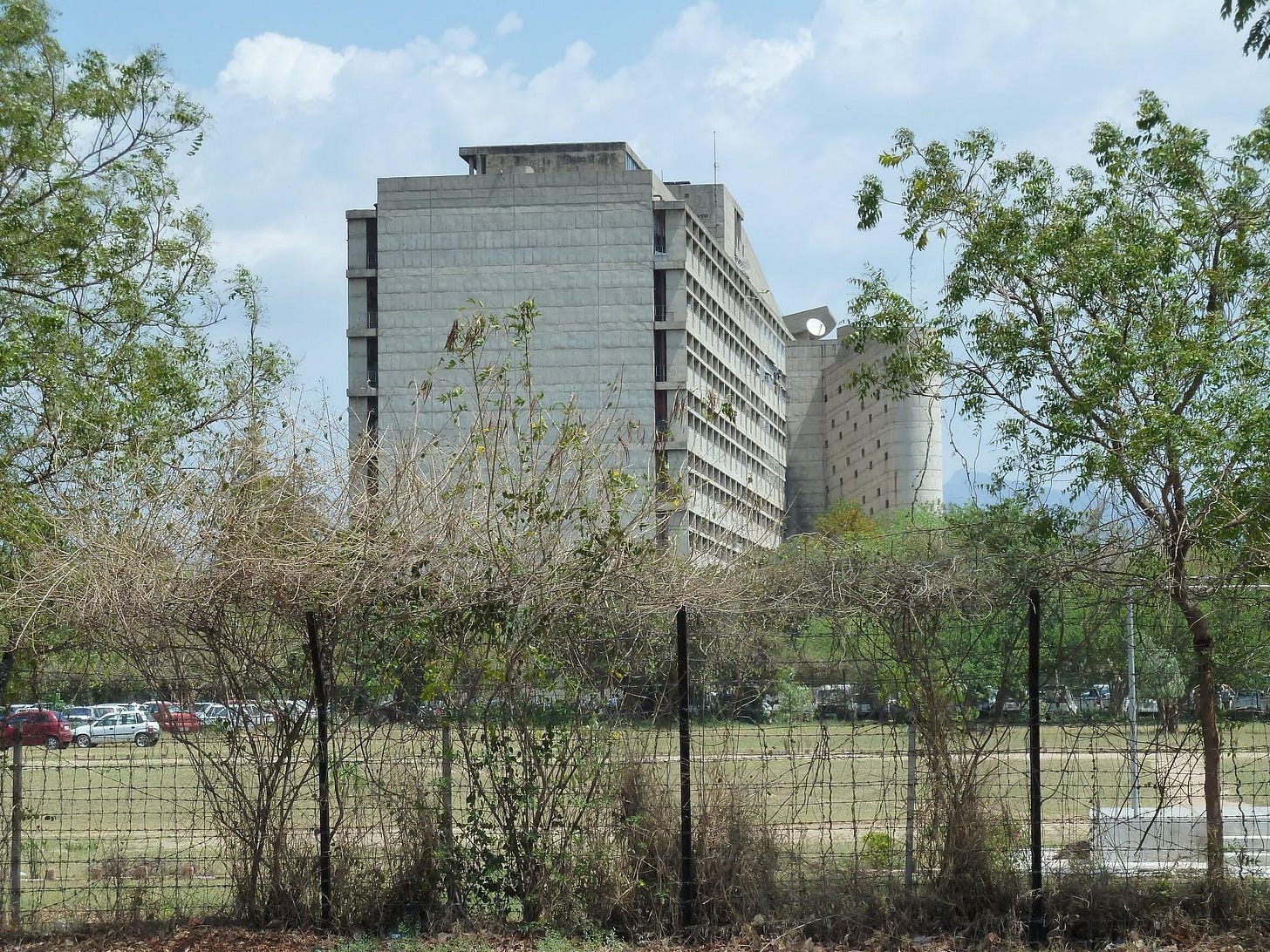Punjab's Opposition Parties Struggle for Relevance: A Closer Look at Congress, SAD and BJP
AAP's Political Dominance Leaves Opposition Parties in Punjab Grappling with Challenges and Struggling to Regain Relevance in the State's Political Landscape.
Introduction: The Aam Aadmi Party (AAP) emerged victorious in the 2022 Punjab Vidhan Sabha elections, securing 92 out of the 117 seats and propelling Bhagwant Mann to the position of the Chief Minister. Under the active guidance of the AAP Supremo Arvind Kejriwal and the party's intellectual and administrative inputs from Delhi, the Punjab Government has arguably performed very well in its inaugural year. Despite the early setback in the Sangrur Lok Sabha by-election, AAP has swiftly overcome the challenge to regain its electoral momentum, wresting the Jalandhar Lok Sabha seat from the Congress in the recent by-election.
Meanwhile, the opposition parties in Punjab, particularly the Congress Party and Shiromani Akali Dal (SAD), find themselves grappling with their respective internal and external issues, and failing to resonate with the state's electorate.
Congress Party's Lacklustre Performance: The Congress Party in Punjab lacks a compelling agenda to engage the public. Its inability to retain the Jalandhar Lok Sabha seat underscores the party's struggles. The Leader of Opposition, Partap Bajwa, despite his eloquence and media presence, fails to strike a strong chord with the people, especially the youth. Punjab Congress President Raja Warring, while vocal and articulate and well-received among the Sikh community, has failed to captivate the masses. Furthermore, Navjot Sidhu, previously an influential figure in the Congress Party, remains rather distant from active political engagement, limiting his interaction generally to social media platforms. Sidhu's sporadic attacks on Bhagwant Mann lack substance, merely resorting to personal remarks rather than any constructive criticism of the AAP Government's policies. Other former Congress Ministers seem to have retreated, possibly to avoid limelight in the context of the Vigilance Bureau enquiries into their amassing disproportionate assets. Some have even joined the BJP, seemingly seeking a safe haven rather than driven by any ideological concerns.
Additionally, former Chief Minister Charanjit Singh Channi, faced a significant setback in the last Vidhan Sabha elections, losing both seats he contested. Thereafter, Channi spent nearly six months abroad. Currently, he is under scanner of the VB for allegedly amassing disproportionate assets, while his nephew is embroiled in a case of the Enforcement Directorate (ED) after a substantial amount of cash was seized in connection with the Punjab Vidhan Sabha elections. Channi's political capital might have reached a low point, but he cannot be written off since he was verily the first Punjab CM from the “dalit” community, which has a very significant vote share in Punjab.
Challenges within Shiromani Akali Dal: Although Sardar Sukhbir Badal continues to lead the Shiromani Akali Dal (SAD), the party faces significant challenges. Even the recent passing of SAD patriarch Sardar Parkash Singh Badal has failed to revive enthusiasm among its cadres. The prospect of reviving an alliance with the BJP appears remote, and Sukhbir Badal faces a serious challenge from Bibi Jagir Kaur, the former Minister and ex-SGPC President, who has announced the formation of Shiromani Akali Panth, a front comprising Sikh leaders irrespective of their political affiliations, for the purpose of the imminent SGPC general elections. Notably, Kaur had garnered 42 votes in the previous SGPC elections compared to the official SAD nominee's 104 votes. This suggests that a fresh general election for the SAD under Sukhbir Badal's leadership would not be a straightforward contest, with a foregone conclusion.
On 8th June PTI reported: “SAD chief Sukhbir Singh Badal appeals to all leaders who left party in last few years to rejoin, says he is ready to apologise if he is at fault.” While its too early to hazard a guess as to how many veteran Akali leaders would come back to the mothership, this announcement is seen more a sign of weakness than a genuine conciliatory gesture, especially in the context of Bibi Jagir Kaur’s open challenge.
Bikramjit Singh Majithia's Crusade: Sardar Bikramjit Singh Majithia, a prominent figure in the SAD, appears to be pursuing his own distinct campaign. Fearless in his criticism of the AAP government's policies, Majithia eloquently communicates in Punjabi, resonating with the masses. Despite being out on bail after a controversial FIR registered during the Channi Government's final days, Majithia remains unfazed by the pending criminal investigation. Interestingly, he seldom appears alongside Sukhbir Badal during press conferences, sparking curiosity, if not controversy. On the other hand, Majithia regularly holds independent press conferences and engages with the public through social media, providing well-researched insights that are difficult to refute factually. Although Majithia's ascension to the SAD leadership is not imminent, his “towering” presence and distinguished personality creates a natural presumption that his role in the Punjab politics under the banner of the SAD would be anything but minor.
Limited Impact of Punjab BJP: Following the termination of its alliance with the SAD, the Punjab unit of the Bharatiya Janata Party (BJP) struggles to gain traction in the State. Absorbing senior leaders from the Congress Party, such as former Chief Minister Captain Amarinder Singh, former Punjab Congress President Sunil Jakhar, and several former Ministers, has failed to invigorate the party's cadre. Tensions persist between "taksali" BJP leaders and the new entrants, hindering proper integration, far less any amalgamation of these blocs. While urban Hindu voters may lean toward the BJP in the 2024 Lok Sabha elections due to the "Modi Magic," the absence of an alliance with the SAD will likely limit the party to winning only three or four of the thirteen Lok Sabha seats. The repeal of the three Farm Laws notwithstanding, the BJP has not been able to win the confidence of the influential Jat Sikh community in the state.
Disarray Among Kisan Unions: The Kisan Unions, including the Sanyuka Samaj Morcha (SSM) Balbir Singh Rajewal's political outfit, continue to struggle with their own internal divisions and dissensions. The various factions of the Bhartiya Kisan Union (BKU) appear fragmented, revolving around individual leaders rather than presenting a unified front. Although the Mann Government has engaged with these farmers’s organizations, it is not being perceived as having been held hostage by them. The Unions have reiterated their old demands but they have they have not been to orchestrate any a state-wide agitation that paralyzed daily life in Punjab.
AAP's Steady Progress: Amidst the opposition's disarray, the AAP government in Punjab continues to cruise along rather smoothly. The Government has managed to avoid major scandals, and strict action has been taken against its own ministers or MLAs suspected of corruption or attempted corruption. AAP's “zero-tolerance” approach towards corruption has resonated well with the public, particularly when contrasted with the alleged 75:25 system of spoils between the past Congress and the Akali governments. The Government's recruitment processes have remained free from scams and scandals, with any glitches addressed promptly, including cancellation of the entire process in some cases. However, fulfilling all the ambitious promises outlined in AAP's election manifesto poses a significant challenge given the State's fiscal constraints. The AAP government must proceed sensibly over the next four years, avoiding reckless actions or mistakes, while striving to deliver on their election commitments.
Summing up: For the opposition in Punjab to regain lost ground against the AAP juggernaut, it must rediscover its relevance and connect with the people of Punjab. As it stands, the Bhagwant Mann-led AAP government appears poised for smooth sailing, benefitting from the disarray within opposition parties, that appear quite rudderless. However, the political landscape is ever-evolving, and the AAP must continue to navigate the challenges while remaining committed to fulfilling its election promises. The focus must continue on clean, citizen-centric governance, jobs for the youth, attracting investment, reviving the agriculture and, last but not the least, maintaining law and order in the sensitive border state. This is an onerous task but definitely not an impossible one.
The countdown to the Lok Sabha elections as already begun and political equations can change or re-align very quickly. We live in interesting times.






KBS Sidhu has made a critical analysis of Punjab political scenario in a most rational way. I also supported AAP but Punjabis, on the whole, are feeling frustrated if it fails to deliver. When Sidhu joined IAS, I was not elated as a Brilliant Tech Graduate was joining Indian Bureaucracy, a legacy of the British, and maintaining a feudal outlook in a democracy. But reading his Blogs, I feel elated that Sidhu has not lost touch with REALITY and can be a lighthouse for Punjabi youth in doldrums.
Very well explained . People needed change . .KBS’s analysis of Punjab political scenario is true & 🧼 write more to help the Government🙏🙏